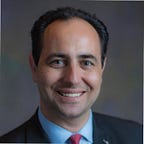Mentorship & Economic Development
The people who mentored me years ago never told me what to do. They simply shed light on the journey they took, so I could learn from their experience. There was no “this is the right/wrong way” — there was only “this is what I did that worked (or didn’t).” Their mentoring was about their individual journey and what I could learn from it.
Through my work I’ve seen several different ways to deploy mentoring programs in communities around the world.
- Create a mentor/mentee matching program that ensures both parties are trained in how that relationship works. 95% of the time, mentorship programs are pro bono from the mentors. On a rare occasion, the mentor might be paid a small fee to accommodate any expenses that might occur. This is why you also don’t want the mentor/mentee to be five-year relationships on a weekly or daily basis! Try to be targeted, specific and short term, and less frequent.
- Create a platform in which individuals share stories about their journey, sharing what worked for them and what didn’t. Explain that the goal of this concept is not to tell them to follow specific steps, but to expose mentees to those steps. The world changes, situations change, their background and knowledge is different, their network is different, but they can learn from it.
- Create an atmosphere where mentorship is fostered, whether it is casual conversations at coffee shops or simple networking opportunities for people to mix and mingle.
The point is to find ways that make sense to the mentors to work with the mentees while engaging your community in economic development.
Meanwhile, I have blogged about the difference between mentors, coaches, advisors, and consultants several times. Here’s one from 2019: Mentor, Coach, Advisor, or Consultant?
BEFORE YOU GO
We see our blogs as opportunities for dialogue. Please share your thoughts as comments.
- What mentorship tools, programs or services can you provide to support the start-ups and small businesses in your community?
- What other types of support — consulting, advising, and coaching — have you offered in your community?
- What other tools have you used to encourage economic development in your community?
_____
Faris Alami is Founder and CEO of International Strategic Management, Inc. (ISM). He works internationally, presenting Exploring Entrepreneurship Workshops and other entrepreneurial ecosystem — related ventures.
